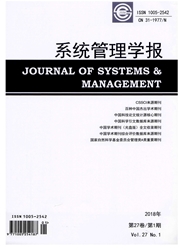

 中文摘要:
中文摘要:
日出行时间是居民出行特征的重要分析指标。围绕家庭成员出行选择的相互作用,构造了基于Copula函数的二元持续时间模型,分析了夫妇俩的出行时间安排。研究用加速失效时间模型描述单个成员的日出行时间选择,并通过Copula函数将夫妇俩的出行时间选择纳入同一模型,能准确刻画2个选择之间的相互影响模式。将所建立的模型应用于居民出行调查数据,分析了夫妻各自出行时间投入与其个人及家庭的社会经济属性、活动和出行特征之间的数量关系,以及存在于夫妻之间的相互影响模式。分析表明,夫妻俩人的出行时间安排存在显著的相关关系,而各自的活动和出行之间存在派生和竞争关系,研究能部分反映个体的时间分配行为,对交通需求预测和管理有重要意义。
 英文摘要:
英文摘要:
Traveling time analysis is one of the most important issues in travel behavior modeling. Focused on the interdependence between household members' travel choices, this paper proposes a Copula-based bivariate duration model to study the joint traveling time decision of the couples. The model uses accelerated failure time model to describe each individual's traveling time, and applies the copula function to the bivariate model to accommodate the correlation structure between the couples. Based on household travel survey data, an empirical analysis is carried out to model the relationship between daily traveling pattern is partly represented b demonstrated that the couple's y the derivative, and competing relationship of activity and travel. It is traveling time decisions are significantly correlated with each other.
 同期刊论文项目
同期刊论文项目
 同项目期刊论文
同项目期刊论文
 期刊信息
期刊信息
